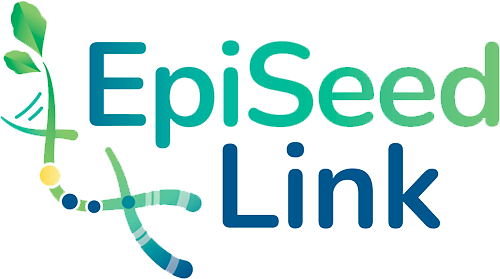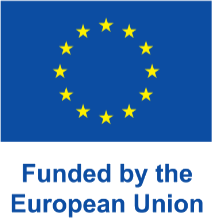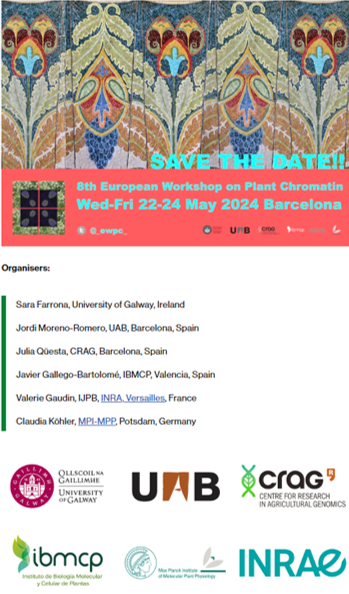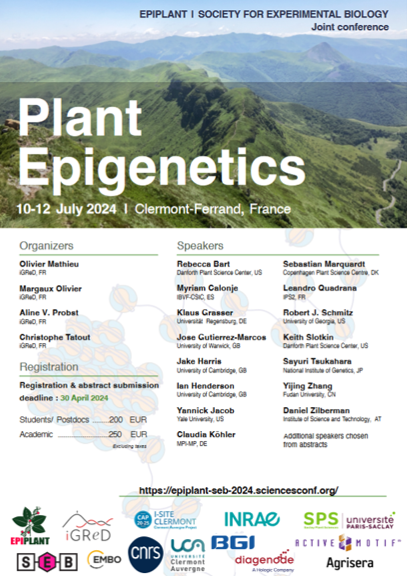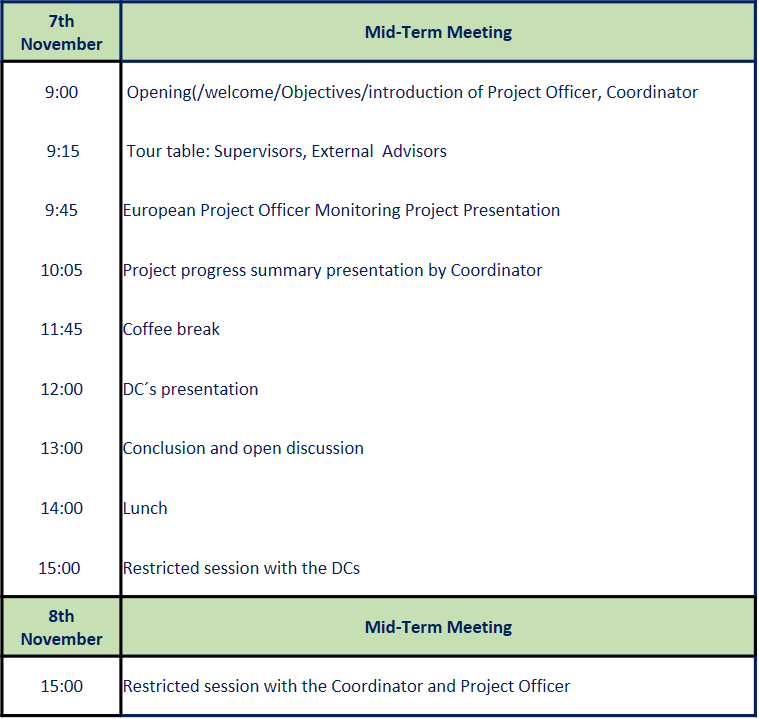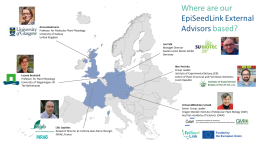Interesting Workshop organized by our Supervisors¡
Some of our Supervisors are organizing two interesting Workshops:
1.- The European Workshop on Plant Chromatin 2024.
Dr. Sara Farrona from the University of Galway (Ireland) and Dr. Javier Gallego-Bartolomé from the Instituto de Biologia Molecular y Celular de Plantas_IBMCP (Valencia, Spain) are involved in the organization of this Workshop with plenty of opportunities to show your work. It will be held at Casa de Convalescència, a beautiful 19th-century building part of the Sant Pau Hospital Art Nouveau complex, in Barcelona on May 22th-24th.
Only a few days left to apply! Submit your abstract for #EWPC2024.
Deadline: 8th March. Join us in Barcelona for three days of exciting discussions about epigenetics and chromatin regulation in plants
All the information on European Workshop on Plant Chromatin 2024 – EWPC2024 (uab.cat)
2.- EPIPLANT/ Society for Experimental Biology. Joint Conference
Dr. ALine Probst from the University of Clermont_Auvergne (Clermont Ferrand, France) is organizing with her colleagues a conference which will be held in Clermont Ferrand on July, 12th-14th. You will be able to share your work and discuss it with experts in the matter.
EPIPLANT/SEB 2024 is a joint meeting of the CNRS Groupement de Recherche (GDR) EPIPLANT and the Society For Experimental Biology.
Deadline: 30th April. Join us in Clermont-Ferrand for other three days of exciting discussions about plant epigenetics, chromatin dynamics, environmental responses and transgenerational inheritance
All the information on EpiPlant/SEB2024
Frontal image by <a href="https://www.freepik.es/vector-gratis/vector-coleccion-gente-negocios_2803290.htm#&position=33&from_view=search&track=ais&uuid=67c1b129-eb1c-4e8c-a960-63bd755f049c">Imagen de rawpixel.com</a> en Freepik
Marry Christmas and a very Happy New Year
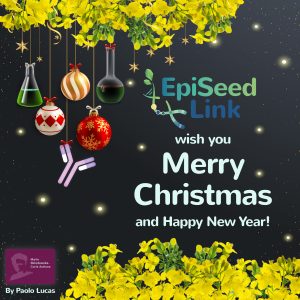
Frontal Imagen by <a href="https://www.freepik.es/vector-gratis/elegante-tarjeta-felicitacion-feliz-navidad-feliz-ano-nuevo_6160220.htm#page=2&query=merry%20christmas%20and%20happy%20new%20year&position=43&from_view=search&track=ais&uuid=d46b7597-5874-4dfa-82d8-5f98126c0e94">Imagen de BiZkettE1</a> en Freepik
EpiSeedLink Mid-Term Meeting with the European Project Officer
EpiSeedLink’s Mid-Term Meeting Showcases Strides in Seed Priming Research Collaboration
The much-anticipated mid-term meeting of the EpiSeedlink project, dedicated to assessing the progress of the consortium, recently took place. The meeting gathered Doctoral Candidates (DCs), Supervisors, External Advisory Board members, the management of the consortium, and the European Project Officer, Paula Hokkanen to evaluate several crucial aspects of the ongoing project.
The mid-term meeting aimed to assess the fulfillment of the recruitment procedure, the eligibility of Doctoral Candidates, project progress, and any deviations from the original research training program. The meeting, organized at month 13-15, necessitated the submission of all deliverables, including a detailed progress report, as a prerequisite for discussion.
The agenda, proposed by the Coordinator and agreed upon with the Project Officer, included key topics such as introductions, a presentation by the REA Project Officer, the Coordinator's report, DCs' individual presentations, a restricted session with the DCs, a meeting between the Coordinator and the Project Officer, and feedback/open discussion.
Doctoral Candidates actively participated in the meeting by preparing slideshows to introduce themselves and outline their individual research projects. The DCs' presentations provided insights into their backgrounds, training, secondments, and the overall impact of the collaborative network on their academic and professional development.
The meeting featured a restricted sessions with the DCs, allowing them to engage with the European Project Officer on various aspects, including administration, supervision, integration, and training effectiveness. A subsequent restricted session between the Coordinator and Project Officer facilitated discussions on any pertinent issues.
The collaborative spirit evident throughout the meeting showcased the commitment of all stakeholders to advancing seed-priming research and nurturing the next generation of researchers in this critical field.

Text by Shannon Skye Derman, Martina Curci,and Maira Marins, PhD Student EpiSeedLink Marie Skłodowska-Curie Actions
Frontal image by <a href="https://www.freepik.es/foto-gratis/gerente-ejecutivo-que-asiste-reunion-videollamada-corporativa-camara-web-oficina-al-atardecer-hablando-personas-conferencia-remota-linea-charlando-conexion-llamada-videoconferencia_43494460.htm#page=8&query=online%20mid-term%20meeting&position=41&from_view=search&track=ais&uuid=02d5340d-f775-4f6a-adda-95dec50e2519">Imagen de DCStudio</a> en Freepik
Introducing our Supervisors and his/her Institutions
It is time to meet the Supervisors of EpiSeedLink and the Hosting institutions where they are based in.
EpiSeedLink is composed of 14 skilled and internationally recognized leaders and 11 host institutions around Europe, including both the academic and the industrial sectors.
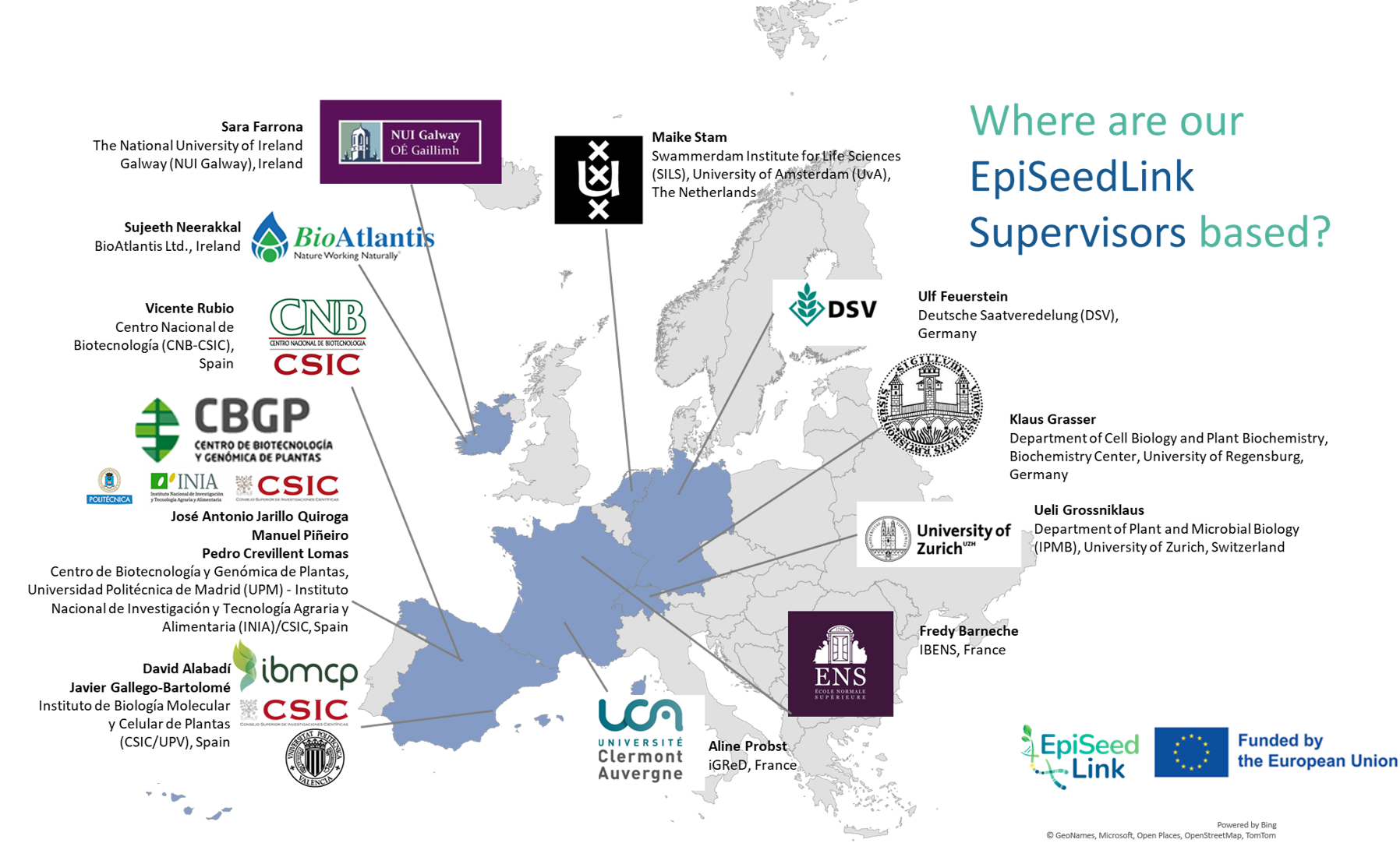 Here is a representation of the supervisors and their institutions.
Here is a representation of the supervisors and their institutions.
The EpiSeedLink Supervisors are a distinguished group of well-renowned researchers hailing from various academic and industrial institutions across Europe. Their collective academic achievements and extensive experience make them prominent figures in the fields of science. They are engaged in a diverse range of research and activities encompassing Epigenetics, Genetics, Plant Physiology, Cell Biology, Molecular Biology, Seed Priming, and, which reflects their ability to bridge gaps between these interconnected disciplines and foster collaborations that drive scientific progress.
Individually, each supervisor boasts an impressive track record of contributions to scientific knowledge and innovation within their respective domains. With a wealth of academic merits, they have not only made significant advancements in their fields but have also demonstrated an exceptional ability to convey complex concepts effectively to students at various levels.
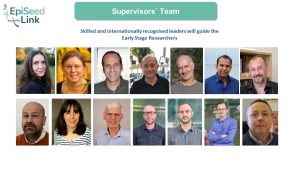
One of the remarkable strengths of the EpiSeedLink Supervisors lies in their extensive experience in guiding and mentoring students through their academic journeys. They have a proven track record of supervising Bachelor’s, Master’s, and PhD students, facilitating their growth and development as emerging researchers. Over the years, they have collectively guided more than 90 PhD students to successful graduations, nurturing the next generation of scientists with their mentorship and insights.
Moreover, their commitment to academic excellence extends beyond PhD supervision. The EpiSeedLink Supervisors have also overseen the progression of nearly 100 postdoctoral fellows, providing guidance and mentorship to early-career researchers as they navigate the challenges of their chosen fields.
For more information about each of our supervisors, click here. If you would like to know more about where each of our supervisors are based, click here. Every step of the way, our supervisors will ensure to provide adequate supervision to each of the EpiSeedLink Fellows, whose project descriptions can be found here.
Introducing our External advisory Board
Episeedlink has an External Advisory Board (EAB) comprising six subject matter experts coming from academia and industry.
Our EAB Members are experts in the Episeedlink topics such as seed development, plant breeding, abiotic stresses, molecular markers, or epigenetics.
- Anna Amtmann, Molecular Plant Physiology (Molecular Biosciences) Professor at the University of Glasglow. Research in her group has continued to unravel the molecular mechanisms that enable plants to adapt to mineral nutrient deficiency, salinity and drought. Current projects investigate the genetic and epigenetic determinants of plant stress tolerance and of root architectural changes under mineral nutrient deficiency.
- Ales Pecinka, Group Leader at the Centre of Plant Structural and Functional Genomics from the Institute of Experimental Botany, v. v. i. (IEB). His research focuses on Chromatin, Epigenetics, DNA damage repair, SMC5/6 complex, DNA protein crosslinks, Seed development. His works mainly use Arabidopsis and barley
- Jon Falk, Managing Director at Saaten-Union Biotec GmbH talked to us about his company in relation to plant breeding, how to improve it, and how to improve The utility of molecular markers for those purposes.
- Leonie Bentsink, Personal Professor at Wageningen UR (University & Research centre). Her research focuses on fundamental aspects of seed traits, like seed dormancy, seed longevity, and germination, concerning their ecological importance and application prospective for the industry.
- Löic Lepiniec. Research Director at Institute Jean-Pierre Bourgin from the INRAE (Institut national de recherche pour l’agriculture, l’alimentation et l’environnement) His research focuses on the regulations of seed development and metabolism.
- Ortrun Mittelsten Scheid, Senior Group Leader at Gregor Mendel Institute of Molecular Plant Biology to the Austrian Academy of Sciences (ÖAW). Her research focus is: “Epigenetic changes contribute significantly to diversity in gene expression, differentiation, and adaptation potential. Using the model plants Arabidopsis thaliana and Aethionema arabicum, her group investigates how environmental factors like heat, light, or genotoxic stress influence chromatin features, gene expression, and epigenetic inheritance, within plants and between generations”.
Introducing our Fellows
It’s time to meet our selected EpiSeedLink PhD Fellows
As our EpiSeedlink program is now in full swing, the past few months has been a period of settling-in for our eleven doctoral fellows. Through hundreds of applicants, the EpiSeedLink Supervisory Board selected eleven top candidates to join the program. The doctoral fellows come from all over the world, and represent diverse nationalities, cultures, and origins.
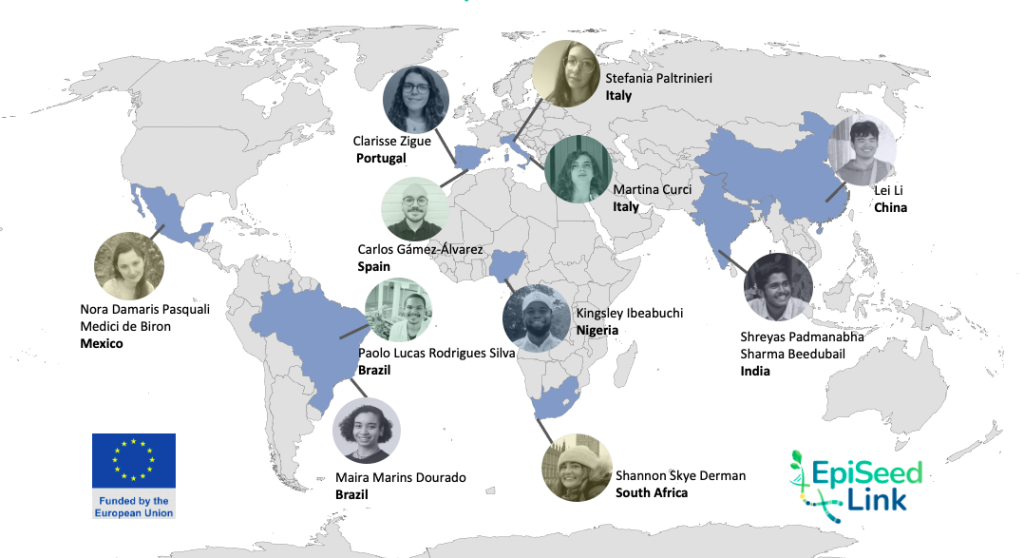
A representation of where each of the eleven PhD fellows are from.
As the fellows find their home-away-from-home at their affiliated research institutes scattered across the European Union, their secondments to each other’s host institutes will allow them to not only spend time with one another but for them to learn from each other and form a sense of community, despite being so far from home.
For a brief introduction to each of our fellows, click here. If you would like to know more about where each of our fellows will be based, click here. Every step of the way, our fellows will be under the EpiSeedlink Supervisory board's guidance, which can be found here.
Text by Shannon Skye Derman, Ph Student EpiSeedLink Marie Skłodowska-Curie Actions
